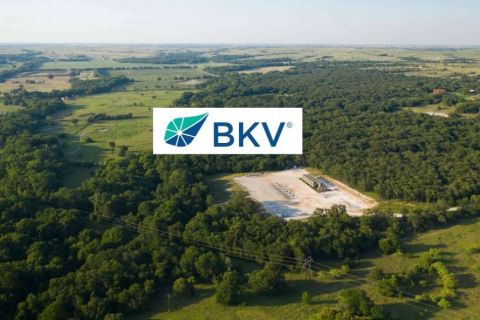
While Canadian Prime Minister Justin Trudeau's government has approved Kinder Morgan's Trans Mountain Expansion, political opponents in British Columbia could still mount a guerilla campaign to hinder the pipeline system project.
Despite Trans Mountain Expansion receiving approval from the Canadian energy regulator and the green light from Prime Minister Justin Trudeau, opponents aren’t giving up. What they’re really hoping for is a minority government headed by a socialist premier who has already declared his hostility to the project.
The May 9 British Columbia election ended with a “hung legislature,” that is, none of the three main political parties won the 44 seats needed for a majority. Incumbent Liberal premier Christy Clark—a supporter of Kinder Morgan Inc.’s (NYSE: KMI) pipeline from Alberta to the West Coast—came close with 43 seats. Next was John Horgan, leader of the leftist New Democratic Party with 41, followed by Andrew Weaver’s Green Party with three.
The Westminster system convention is that the incumbent party gets to form a government and try to “hold the confidence of the house.” If Clark fails because she can’t persuade at least one member of the other parties to support her government, then Horgan gets to try. Weaver, a climate scientist who also opposes Trans Mountain Expansion, is expected to support Horgan and the NDP in a minority government.
How might this affect the viability of Kinder Morgan’s project, which is scheduled to start construction this fall? In principle, it doesn’t. Inter-provincial pipelines are the constitutional jurisdiction of the Canadian government, with legal precedents dating back to the 1950s supporting that position.
But celebrity environmental protestors like Bill McKibben of 350.org have promised to fight every energy infrastructure project in North America with every weapon at their disposal. James Colman, a professor of energy law at the Dedman School of Law at Southern Methodist University, says that if Horgan becomes premier of British Columbia he and his eco-activist supporters could harass Kinder Morgan in a political guerrilla war, hoping to frustrate the Texas-based pipeline giant until it gives up on the 525,000-barrel-a-day project.
“Environmental groups have become very creative in recent years, realizing that apart from just the regulatory permit approval that the pipeline has to obtain, there are any number of little steps in the construction of the pipeline that they can resist,” Colman said in an interview.
For instance, Kinder Morgan hopes to raise $1.75 billion in an initial public offering in Canada. Greenpeace is asking the Alberta Securities Commission to deny permission, arguing the company ignored International Energy Agency worst case scenarios for global oil demand, thus misleading investors.
“Kinder Morgan’s business plan only works if the world fails to act on climate change,” said Keith Stewart of Greenpeace Canada. “They may think that’s a good bet, but they should be honest with potential investors about the risks being taken with their money.”
Having the British Columbia government on its side would be a real boon for Stewart and company, says Colman.
“Kinder Morgan might need a permit to take heavy trucks down some road, say. The provincial government or the municipality can deny the permit, forcing the company to apply to the National Energy Board to compel the government to grant the permit,” said Colman. Every permit denied is a delay and delays cost big money during construction.
What if the provincial government instructs public power monopoly BC Hydro to hike electricity rates for Trans Mountain Expansion pumping stations, wrecking the pipeline’s economics? What if a Premier Horgan encouraged eco-activists to blockade provincial road access required by Kinder Morgan construction crews?
Colman says that while hypothetical, these kinds of scenarios are plausible if an NDP/Green coalition is serious about stopping the pipeline.
But as political scientist Keith Brownsey points out, Prime Minister Justin Trudeau—who approved Trans Mountain Expansion last November and publicly supports it—has skin in the game and plenty of political leverage over British Columbia.
“The Prime Minister can call up the premier and be negative, maybe cancel federal projects in British Columbia. Or maybe checks to the province get lost in the mail,” said Brownsey in an interview.
“Or he can be positive and suddenly discover that a B.C. project has been moved up the list of priorities or $1 billion has been found to build a critical road.”
The Mount Royal University professor argues that Trudeau simply has too much on the line to allow British Columbia to interfere with Trans Mountain Expansion:
- Protection of federal jurisdiction just as other energy infrastructure projects are on the horizon;
- A close-knit relationship with Premier Rachel Notley in neighboring Alberta, which has supported Trudeau’s aggressive energy and climate policies, such as the national carbon tax; and
- $424 billion of tax revenue the Alberta oil sands, whose oil will flow to market through the Kinder Morgan pipeline, will provide to Canadian coffers from 2015 to 2035, according to the Canadian Research Energy Institute.
And there is always the threat of a civil law suit from Kinder Morgan should the pipeline project not proceed.
The prospect of an NDP/Green coalition government is still not certain because the NDP won the Comox-Courtney riding with just nine votes. A judicial recount should be completed by next week.
If the Liberals prevail in the contested seat, they would have a majority government but still might require occasional support in the Legislature from the Greens, who could demand concessions on Trans Mountain Expansion. But plenty of observers think the odds are just as good the NDP will triumph because of the recount.
Brownsey says that in almost every ballot box scenario, the margin of victory will be razor thin. And that may put the contentious pipeline project back on the public radar just as Kinder Morgan gets ready to fire up the bulldozers.
Recommended Reading
Delek Logistics Partners Raises $166MM in Offering to Pay Debt
2024-10-11 - Delek Logisitics Partners closed an offering of 4.42 million common units to generate gross proceeds of $166 million.
Mach to Sell Additional Common Units to Fund A&D
2024-09-25 - Mach Natural Resources announced that the underwriters of its public offering of 7.27 million units have exercised an option to purchase an additional 1 million common units at $16.50 per unit.
After BKV’s IPO, Is Market Open to More Public SMID Caps?
2024-10-03 - The market for new E&P and energy IPOs has been tepid since the COVID-19 pandemic. But investor appetite is growing for new small- and mid-sized energy IPOs, says Citigroup Managing Director Dylan Tornay.
BKV Prices IPO at $270MM Nearly Two Years After First Filing
2024-09-25 - BKV Corp. priced its common shares at $18 each after and will begin trading on Sept. 26, about two years after the Denver company first filed for an IPO.
Quantum’s VanLoh: New ‘Wave’ of Private Equity Investment Unlikely
2024-10-10 - Private equity titan Wil VanLoh, founder of Quantum Capital Group, shares his perspective on the dearth of oil and gas exploration, family office and private equity funding limitations and where M&A is headed next.
Comments
Add new comment
This conversation is moderated according to Hart Energy community rules. Please read the rules before joining the discussion. If you’re experiencing any technical problems, please contact our customer care team.






